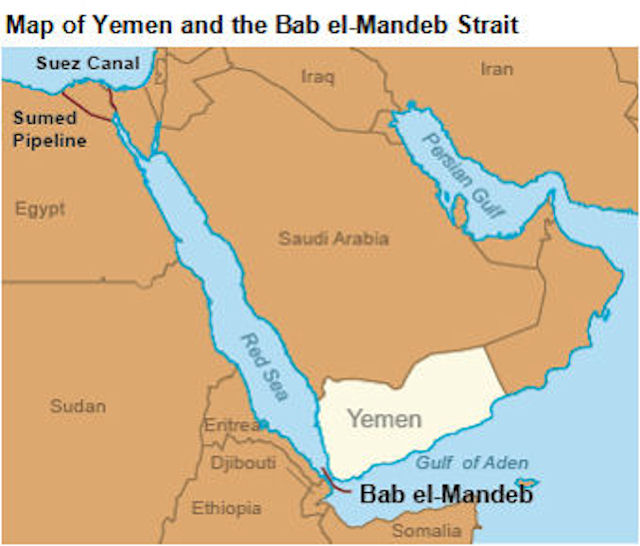Ahmedabad
(Head Office)Address : 506, 3rd EYE THREE (III), Opp. Induben Khakhrawala, Girish Cold Drink Cross Road, CG Road, Navrangpura, Ahmedabad, 380009.
Mobile : 8469231587 / 9586028957
Telephone : 079-40098991
E-mail: dics.upsc@gmail.com

Challenges in the Red Sea
News: The Israel-Hamas war has opened a new front in the Red Sea, which will impact Asian economies.
What are the challenges faced in the Red sea region?
• The announcement of Houthi involvement in the Israel-Hamas war brought the critical Red Sea into the heart of the conflict.
• The Houthis, have intensified their attacks in the Red Sea, targeting commercial vessels, particularly those with Israeli affiliations.
• The growing political and military influence of non-state actors like the Houthis highlights the growing impact of such groups on regional stability and security.
How has USA responded? What stand has Saudi Arabia taken?
• The U.S. has deployed military assets, including longer-range drones and missiles, in response to the Houthi threat.
• In response to increasing incidents, the U.S. calls for a multinational task force in the Bab al-Mandab Strait, a crucial passage connecting Yemen, Djibouti, and Eritrea.
• Despite the on-going conflict with the Houthis in Yemen, Saudi Arabia urges restraint by the U.S., signaling a complex geopolitical landscape.
Implications of recent challenges
• The Red Sea’s instability affects crucial trade routes, impacting global economies, especially since nearly 15% of global trade passes through.
• The involvement of multiple nations, including the U.S., Saudi Arabia, and Iran, leads to heightened regional tensions.
• The global ramifications of security deterioration in the Red Sea extend to Asian economies such as India, Japan, South Korea, and China. Disruptions in the region pose risks to energy security.
What needs to be done?
• A multinational task force is needed to protect Red sea especially around Bab al-Manded Strait.
• India, Japan, and South Korea, as net importers of oil and gas, emerge as stakeholders in West Asian security, underlining their strategic and kinetic interests.
• Other countries with naval power in the region should follow India’s Operation Sankalp, which began in 2019 to escort India-flagged ships.
• Recognizing the increasing military capabilities of groups like the Houthis, strategies must adapt to consider the influence of non-state actors in the region’s stability.

Address : 506, 3rd EYE THREE (III), Opp. Induben Khakhrawala, Girish Cold Drink Cross Road, CG Road, Navrangpura, Ahmedabad, 380009.
Mobile : 8469231587 / 9586028957
Telephone : 079-40098991
E-mail: dics.upsc@gmail.com
Address: A-306, The Landmark, Urjanagar-1, Opp. Spicy Street, Kudasan – Por Road, Kudasan, Gandhinagar – 382421
Mobile : 9723832444 / 9723932444
E-mail: dics.gnagar@gmail.com
Address: 2nd Floor, 9 Shivali Society, L&T Circle, opp. Ratri Bazar, Karelibaugh, Vadodara, 390018
Mobile : 9725692037 / 9725692054
E-mail: dics.vadodara@gmail.com
Address: 403, Raj Victoria, Opp. Pal Walkway, Near Galaxy Circle, Pal, Surat-394510
Mobile : 8401031583 / 8401031587
E-mail: dics.surat@gmail.com
Address: 303,305 K 158 Complex Above Magson, Sindhubhavan Road Ahmedabad-380059
Mobile : 9974751177 / 8469231587
E-mail: dicssbr@gmail.com
Address: 57/17, 2nd Floor, Old Rajinder Nagar Market, Bada Bazaar Marg, Delhi-60
Mobile : 9104830862 / 9104830865
E-mail: dics.newdelhi@gmail.com